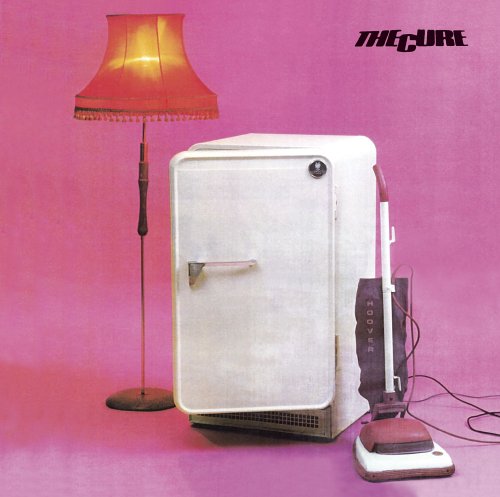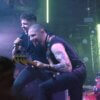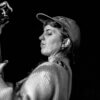Before The Cure became icons, before Robert Smith’s eyeliner and massive hairdo, formed in Crawley, The Cure were three skinny kids, Robert Smith, Lol Tolhurst and Michael Dempsey wearing leather jackets and high-waisted trousers playing new wave in late 70s Britain.
Their debut album Three Imaginary Boys, released through Fiction records on the 11th of May 1979, displayed none of the group’s later trademark sound that would make them a household name. Instead it was new/no wave at its most minimalist, with spiky guitars, bone dry bass and drums, and above all Robert Smith’s cynical, world-weary vocals. The band were apparently not happy with the album, and it remains oddly different from the rest of their catalog. However, Three Imaginary Boys is a brilliant exercise in hyper-stylized minimalism, displaying an unmistakable originality and Smith’s emerging brilliance as a songwriter, not to mention his already unique guitar style.
Right off the bat opener ’10:15 Saturday Night‘ is a gripping evocation of youthful boredom, with the hi-hat cleverly imitating the incessant drip of a kitchen tap. It also introduces us to the album’s sonic palette: crisp, slightly raw, minimalist but with just enough studio wizardry to make it stand out. Even in the experimental no-wave/post-punk era, this album had a completely unique sound. Conceptually it could be compared to film noir soundtracks, Miles Davis’ cool jazz albums of the 50s and John Cage’s eccentric experimentalism. Not too shabby for a young band with zero studio experience!
Equally brilliant is ‘Another Day‘. Many an angst-ridden teenager must have recognized themselves in its aching melancholy, its shameless wallowing in the kind of beautiful, heart-breaking desperation only the very young can pull off. ‘Subway Song‘ is downright creepy, perfect for a stalker scene in a 70s B-movie. The blood-curling scream at the end still startles the unsuspecting listener. ‘Fire in Cairo‘, a single at the time, is another highlight. Somewhat like the jazz classic ‘Caravan‘ it’s a Western interpretation of vaguely Arabic-sounding melodies, its chromatic chords and unexpected melodic twists clumsily effective in conjuring up the song’s lyrics. Set to an infectious beat, the single was a natural early hit for the young group.
The album’s title track is a preview of the sound that would make the band famous: swirling guitars and atmospheric vocals carried by a minimalist rhythm section. Towards the end a blistering guitar solo rips the hypnotic mood to shreds, once again, a testament to Smith’s guitar prowess.
Three Imaginary Boys is the sound of a young, inexperienced band finding their sound. As such it is surprisingly cohesive, the work of a band stubbornly and confidently sticking to their guns, sonically and artistically. You could be forgiven to have expected the band’s music to take a completely different path based on this album. As it is, the Cure would go on to cement their reputation as a band that was truly ground-breaking in a very different but equally brilliant vein. Regardless, Three Imaginary Boys stands on its own two feet as a work of art. It remains by far my favorite Cure album.




